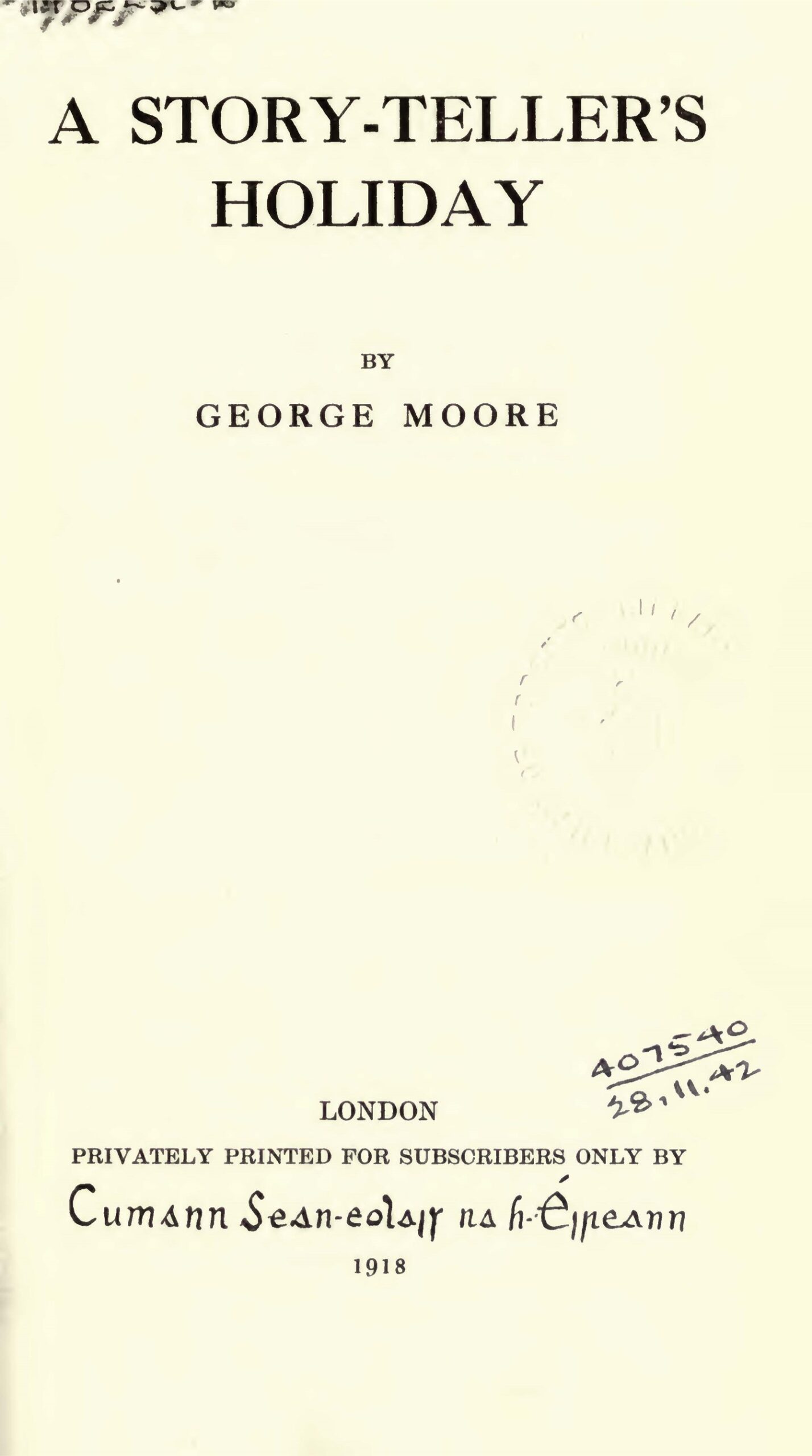For INCS 2024 attendees,
click here to view and download the full paper.
 Gender is neither automatic nor binary for the eponymous character of George Moore’s novella “Albert Nobbs” (1918). Instead, Albert Nobbs has a complex and shifting relationship to gender identity that responds to both Nobbs’ interior sense of self, as well as the emotional and economic possibilities and limits of late-Victorian manhood and womanhood.
Gender is neither automatic nor binary for the eponymous character of George Moore’s novella “Albert Nobbs” (1918). Instead, Albert Nobbs has a complex and shifting relationship to gender identity that responds to both Nobbs’ interior sense of self, as well as the emotional and economic possibilities and limits of late-Victorian manhood and womanhood.
Here, I look to trace the gendered possibilities for these characters and begin to situate them within a larger framework of Victorian and early twentieth-century literary genealogies of trans identities. I do so ever-mindful of the lived realities of people whose lives were intentionally hidden by themselves for their safety and putatively obscured by institutions and organizations seeking to limit gendered possibilities.
Methodologically, this paper works against the cis-washing of literary history and the opacity and absence of trans archives, particularly in regard to nonbinary identities and narratives. In reading Moore’s “Albert Nobbs” as a trans text, I build on the work of our esteemed keynote speaker Susan Stryker. The novella gives us a vision, contradictory though it may be, of (what Styker has termed) “transgender phenomena” that suggests a richer range of gender identities in the nineteenth century and early twentieth century than the discursive construction of trans as new/woke would have us believe.
In “Albert Nobbs,” we find early examples of what have become tropes of literature and popular-culture narratives about trans people and gender transition. Thus, positioning this novella as part of larger literary history of gender diversity speaks to Leslie Feinberg’s still provocative claim that “Transgendered women and men have always been here.” As I argue in my reading, the reciprocity of trans for trans (T4T) connection between Albert and Hubert troubles the narrative and presents alternative possibilities to the novella’s reproduction of such trans tropes.
- Read and download the text of “Albert Nobbs” via the Internet Archive
- Further reading: reading lists for HON 350: Trans Literature Beyond Transition
